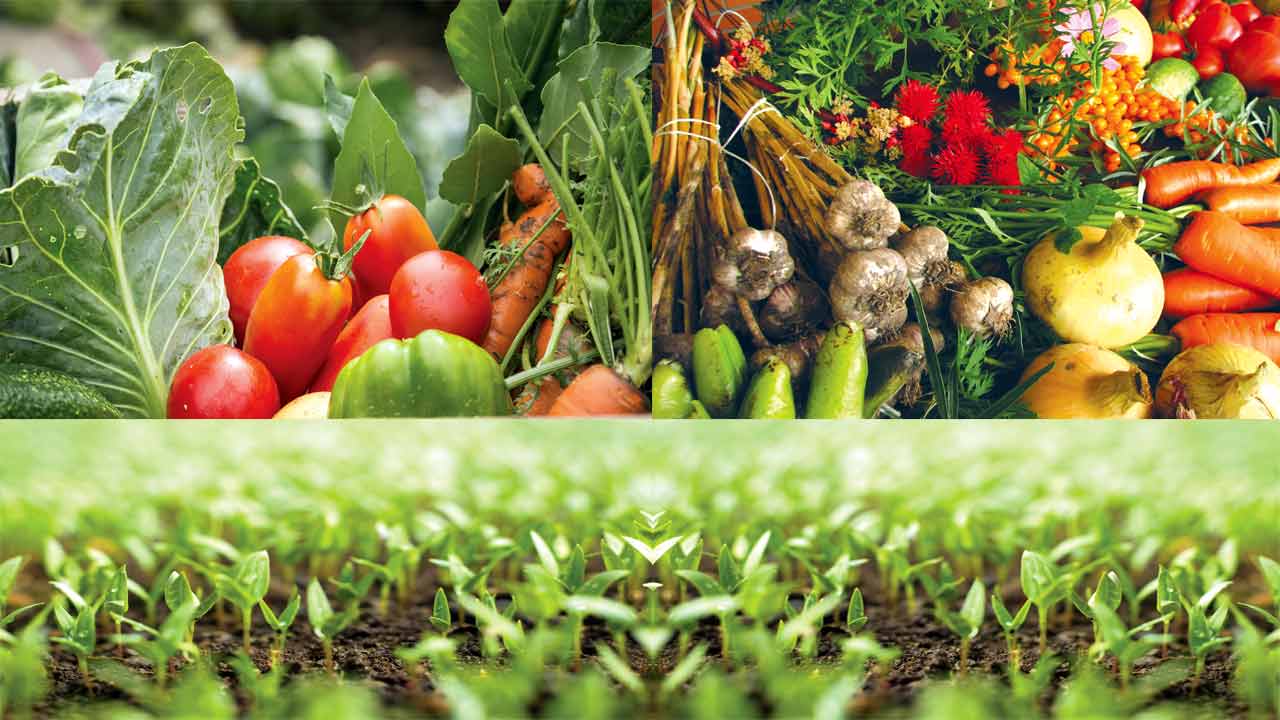The government has aimed high when it comes to its agricultural policy. 50% of our food production should be according to bio-norms by 2020. In this context, several measures are being undertaken to promote bio-farming in Mauritius. News on Sunday reports...
Even though it has not been proven whether there exists a direct relationship between the abusive utilisation of pesticides in agricultural production and a rise in the number of cancer cases, there is a strong perception that this might be the case.
In fact, during a recent workshop organised by the Mauritius Chamber of Agriculture on SMART Agriculture to disseminate the findings of a study carried out on some 300 planters, the public was shocked to learn the manner in which pesticides were being applied in fruit and vegetable cultivation. During the survey, some planters admitted using pesticides to control not only pests but also diseases in plants. In some cases, the amount used was being increased without any expert advice. Some planters were even using a cocktail of pesticides, without authorisation, on their food crops as a preventive measure.
Regulations to be finalised
In view of all malpractices, the Ministry of Agro-Industry decided to intervene. A Technical Committee has been set-up to prepare regulations under the Dangerous Chemicals Control Act 2004 to control the proper and safe use of pesticides by farmers and on pesticides residues on vegetables, fruits and other agricultural products. These regulations are expected to be finalised by the end of this year. Once they are in force, the Ministry will be empowered to take actions against farmers who use excessive amounts of pesticides.
Recourse to private laboratories
Moreover, the authorities are also working to ensure that the fruits and vegetables we are consuming do not have pesticide residues above the authorised threshold. In view of the limited capacity of the Food Technology Laboratory, both in terms of equipment and personnel, the possibility of having recourse to private laboratories is being considered. In this way, more samples could be analysed and results would be available in a timely manner for effective remedial actions, whenever necessary.
MauriGap Level 1 standard
According to the Minister of Agro-Industry, Mahen Seeruttun, there is a need to encourage farmers to shift from conventional agricultural practices which are currently based on heavy utilisation of chemical inputs to bio or organic farming with less or no use of chemical inputs. “This is however a lengthy process which cannot be achieved overnight,” he said.
To kickstart this process, in collaboration with the Mauritius Standards Bureau, the Ministry of Agro-Industry has developed the ‘MauriGap Level 1 Standard’ which is the basic standard for the production of crops under bio farming systems.
This standard has already been gazetted. As per eligibility criteria to have access to incentives, applicants will have to take the commitment to implement the requirements of MauriGAP Level 1 and to be certified within a period not exceeding one year from the start date of the project.
Mauritius Agricultural Certification Body
The government is also in the process of setting up a certification body: the “Mauritius Agricultural Certification Body” which will operate under the aegis of the Ministry of Agro-Industry to certify all agricultural products that comply, in the first instance with the MauriGAP Level 1 Standard. The certification will gradually be extended to Levels 2 and 3 once these are finalised.
The Ministry has also obtained technical assistance from the FAO to implement the project ‘Support for the Development of Organic Farming and Institutional Capacity Building in Mauritius.’ As per this project, the FAO will prepare a national strategic plan for the adoption and promotion of organic agriculture including a strategy on marketing of organic products and prepare a national legislation on organic agriculture.
Incentives to farmers
Farmers involved with bio-farming activities will be eligible to:
(1) Income tax holiday for the first eight years of operation
(2) Value-Added Tax exemption on production equipment and other input acquired for the implementation of the project;
(3) Loan facilities at an annual interest rate of 3.4 % over a period of ten years for a maximum of 90% project financing under the MauBank SME Financing Scheme and fast-track business support solutions from the FAREI and MyBiz.
400 samples tested annually
Since 2009, the Ministry of Agro-Industry has been systematically collecting samples of fresh fruits and vegetables at farm gate level for analysis of pesticides residue. An average of 400 samples are being collected and tested annually. Of these, an average of 4.2% were above the authorised threshold as set out by the FAO Codex Alimentarius. Those farmers whose samples were found to be above the limit, are under continuous monitoring by FAREI to ensure that they do not make abusive utilisation of pesticides.
 Par
Leena Gooraya-Poligadoo, Defimedia.info
Par
Leena Gooraya-Poligadoo, Defimedia.info
 Par
Leena Gooraya-Poligadoo, Defimedia.info
Par
Leena Gooraya-Poligadoo, Defimedia.info

 J'aime
J'aime